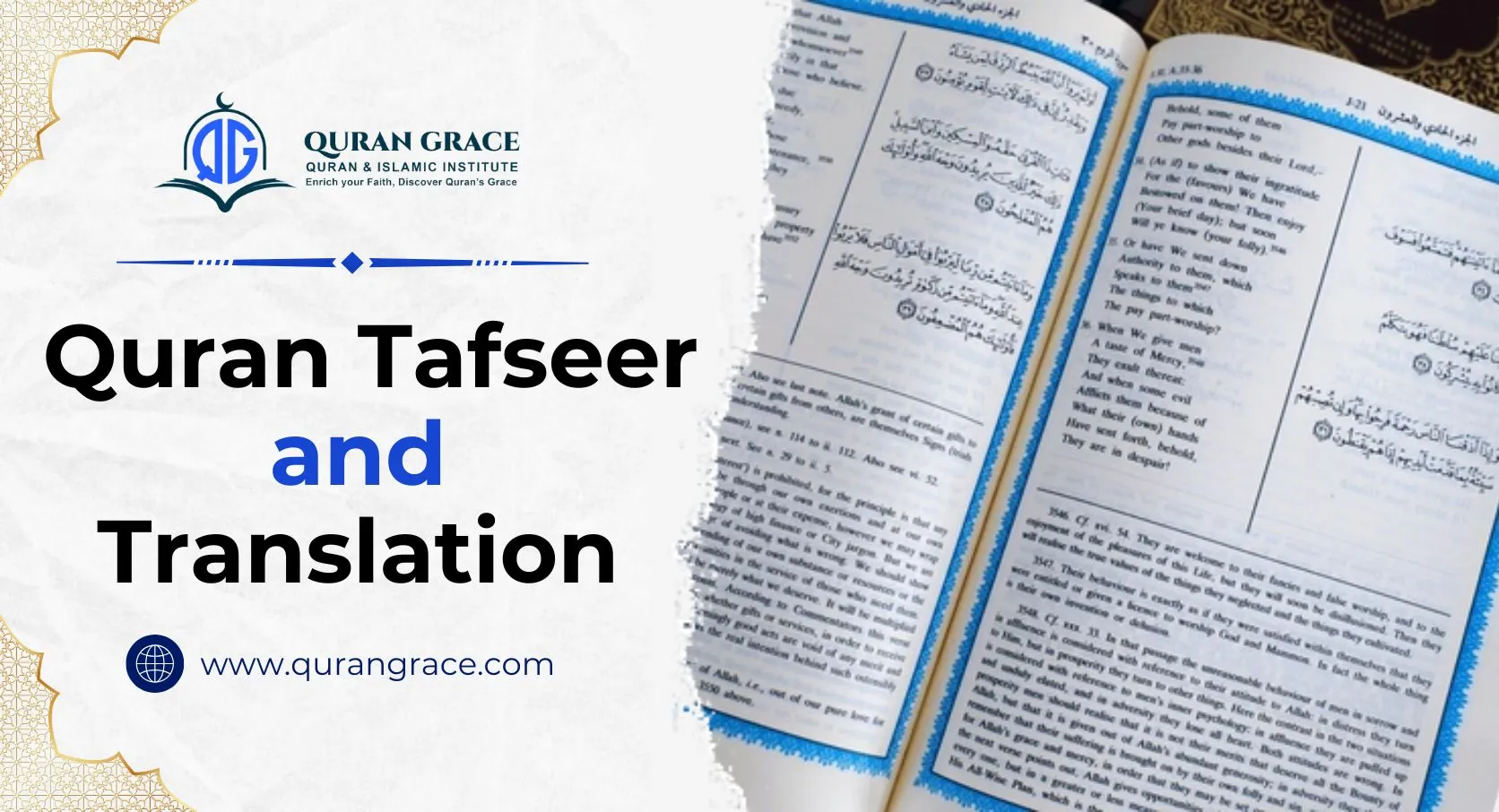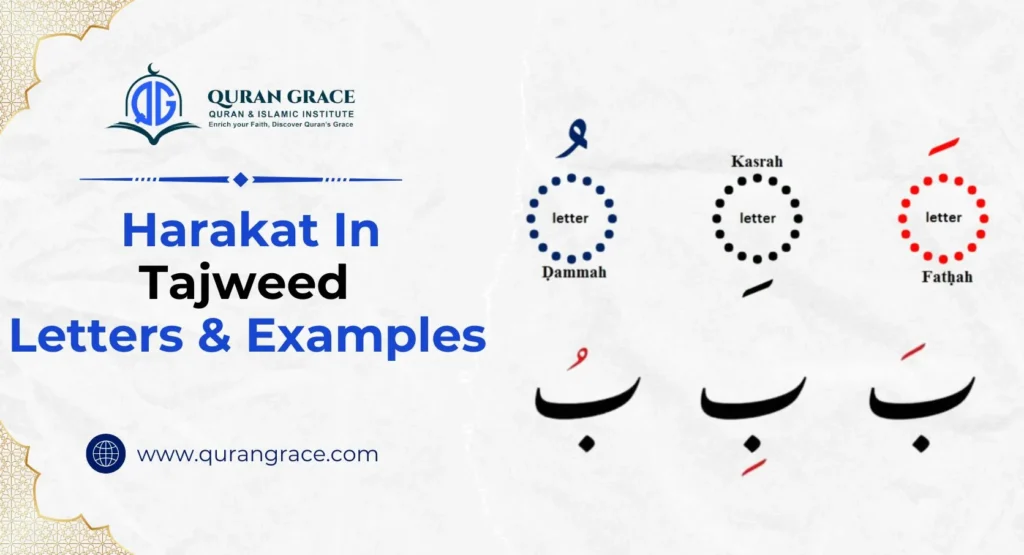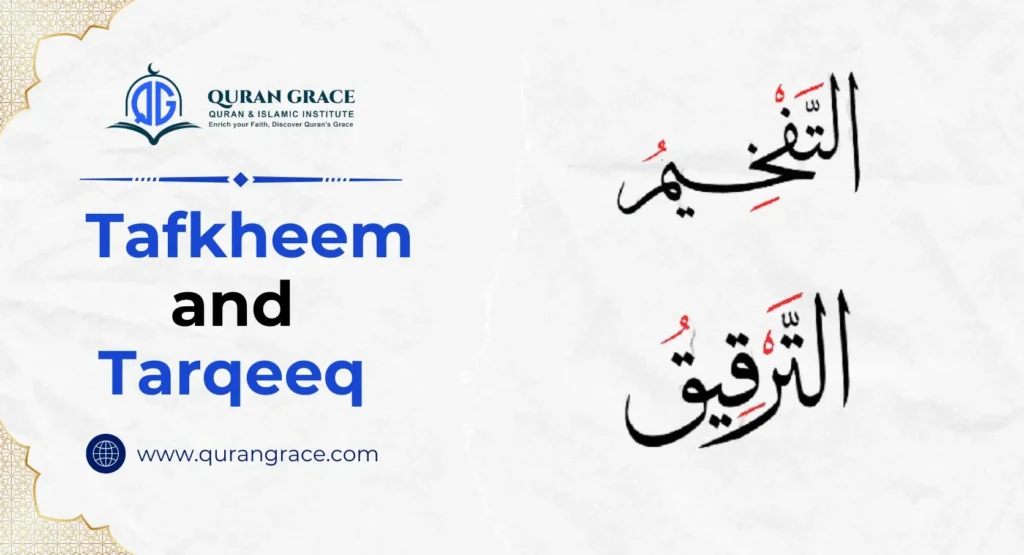Two terms frequently confused in the study and interpretation of the Quranic text are Quran tafseer and translation. It is essential to clarify that these two concepts possess distinct characteristics, which underscores the necessity for learners to comprehend the context and meaning of each to enhance their understanding of the Quran.
Translation involves converting Quranic verses from one language to another; in contrast, Tafseer provides a more comprehensive interpretation of the verses, considering historical context and various nuances. Let’s learn about these 2 elements in more detail.
Table of Contents
ToggleWhat is Tafseer?
Tafseer is the process of interpreting and elucidating the verses of the Quran, which helps in grasping its deeper meanings and teachings. It serves as a comprehensive guide that examines the historical and cultural context, facilitating a better understanding for readers.
This interpretive method is essential for Muslims who wish to gain insights into the wisdom contained within the Quran. Tafseer clarifies the intended messages of the verses, allowing for a deeper comprehension of their meanings and practical applications in everyday life.
Key Aspects of Quran Tafseer
- The Tafseer gives a historical and cultural context, which sheds light on its verses and helps students understand the verses more deeply.
- It provides detailed explanations of the meanings behind the text, delving into the nuances of the Arabic language and the careful word choices that are made.
- Additionally, it explores Islamic law and imparts moral teachings.
- Different scholars have interpreted the words of Allah to give a diverse perspective to the readers.
What is Quranic Translation?
Translation plays a crucial role in making the Quran understandable to non-Arabic speakers by converting its original Arabic text into various languages, such as English, Persian, French, and Urdu. This process acts as a bridge, allowing a broader audience to engage with the teachings of the Quran.
The primary purpose of translation is to assist students in reading and comprehending the Quran. However, it is important to note that translations may not fully capture all the intricacies of the original Arabic language. As a result, many scholars and learners recommend studying Tafseer alongside translations to gain a deeper understanding of the meanings and context of the verses.
Key Aspects of Quranic Translation
- Translates Quranic text into other languages.
- Increases access for non-Arabic speakers.
- Enables reading without requiring extensive study.
- Clearly presents the meanings of the Quran.
- Aids in sharing the Quran’s message with a diverse global audience.
Key Differences Between Tafseer and Translation
| Tafseer | Translation |
| Tafseer is usually in the same language as the original Quran, often Arabic. It deeply explains the Quranic verses, delving into the nuances of the Arabic language. | Translation of the Quran into languages like English makes it accessible to non-Arabic speakers but may overlook the original Arabic nuances. |
| Tafseer provides in-depth analysis, historical context, linguistic insights, and various interpretations for a deeper understanding of the Quran. | Translation offers a simplified understanding of the Quranic text, making it easier to read and comprehend without exploring the original intricacies. |
| Scholars and students who want a deeper comprehension of the Quran are Tafseer’s target audience. | A wider range of people is intended by the translation, including non-Arabic speakers and those new to Quranic studies who are looking for a fundamental comprehension of the text’s meaning. |
| Tafseer is offered in the form of in-depth books or commentaries, which can be lengthy and may call for serious study and patience. | Translations of the Quran are offered as easily readable passages that do not require in-depth analysis. |
| Tafseer is frequently used to provide a thorough explanation of verses in separate books or alongside the Quranic text. | Translations can be included in books that stand alone or next to the Quran, making it easier to read and study on your own time. |
| Tafseer is considered sacred and authoritative for knowledge of the Quran, but it does not take the place of the text itself. | Translation, while respected, is not considered as sacred as the original Quran, which is meant to be understood but not to be a substitute for the original text. |
| Expertise is needed for tafseer, which is given by academics or people who have a deep understanding of Arabic and Islamic customs. | Since linguists and translators without specific religious knowledge can work on translations, the authors are more diverse. |
Conclusion
Understanding the differences between tafsir and translation is important for engaging with the Quran. Both are necessary to enhance Quranic knowledge and understand the message of Allah. You are welcome to join the online tafseer course and the online Quran Translation course at Quran Grace with a free consultation today!








